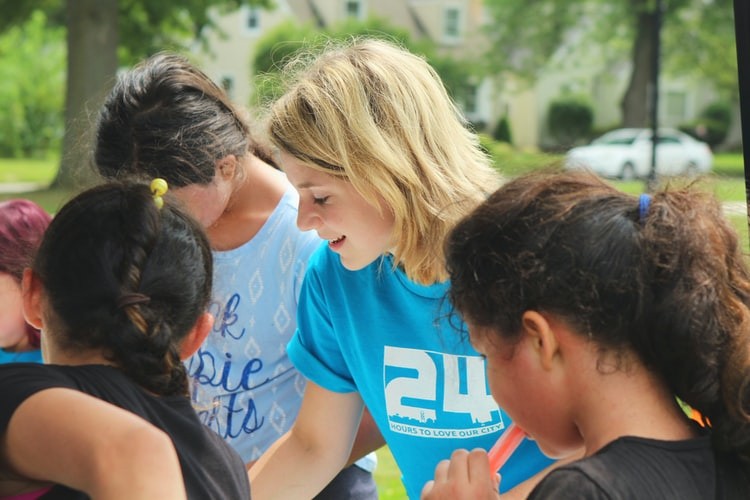Researchers at the University of Virginia looked at attachments as predictors of teens' empathic support for friends. The ability to empathize means understanding other's perspectives and emotions and care for them.
The team said that their relationships with friends could be predicted by having secure family relationships because teens who have this report having higher levels of empathy for others.
Previous studies have shown that adolescence is a key developmental period for the growth of empathy, contrary to popular myths about teens being self-obsessed.

How Do Teens Learn Empathy?
The study, titled "Here for You: Attachment and the Growth of Empathic Support for Friends in Adolescence," published in the journal Child Development, tested whether secure attachments to family predict teens' ability to provide empathic support to their close friends.
Jessica Stern, a post-doctoral fellow at the University of Virginia, said that the findings showed that teens who have a more secure relationship by age 14 provide greater support to friends and do so consistently. On the other hand, those with lesser secure family attachments at age 14 showed lower empathic support for friends during early adolescence but gradually increases over time.
In return, close friends tend to also seek support from those with secure family relationships in early adolescence.
The study suggests a strong association between attachments and teens' ability to develop empathy towards others, EurekAlert! reported. More so, it suggests that friends' support-seeking develops alongside the teens' ability to deliver empathy. Support-seeking helps empathy to develop, and empathy fosters support-seeking from friends.
that highlights the importance of investing in the quality of family relationships in early adolescence to build empathy and positive interactions with others. Programs in parenting, family therapy, school-based interventions, and others could help young teens to feel safe and supported in their relationships with adults to equip them to become empathic and caring for other people.
Why is it Important For Teens to Learn Empathy?
Stern wrote in The Conversation that more empathetic teens tend to be less aggressive, show less prejudice towards other people, and are less likely to bully others.
The findings show that empathy begins developing in teens who are secured and feeling connected with their families. These secure family attachments are characterized by deep trust, emotional safety, and responsiveness that give them the first-hand experience of what it feels like to receive empathy. Their foundation allows them to share the empathy they learned from their attachments to close friends and others.
Although, the team acknowledged some of the limitations of their study. First, they only analyzed empathy as the reason for helping peers. Teens could have several motivations for helping their peers, such as obligations or the desire to be viewed positively by other people. Also, it is important to see whether attachments predict caregiving behavior in other contexts, like when they have their own children.
There is more to learn about teens' empathy, and how to nurture empathy in adolescence is critical in building a compassionate society.
Check out more news and information on Psychology and Empathy in Science Times.
© 2026 ScienceTimes.com All rights reserved. Do not reproduce without permission. The window to the world of Science Times.












